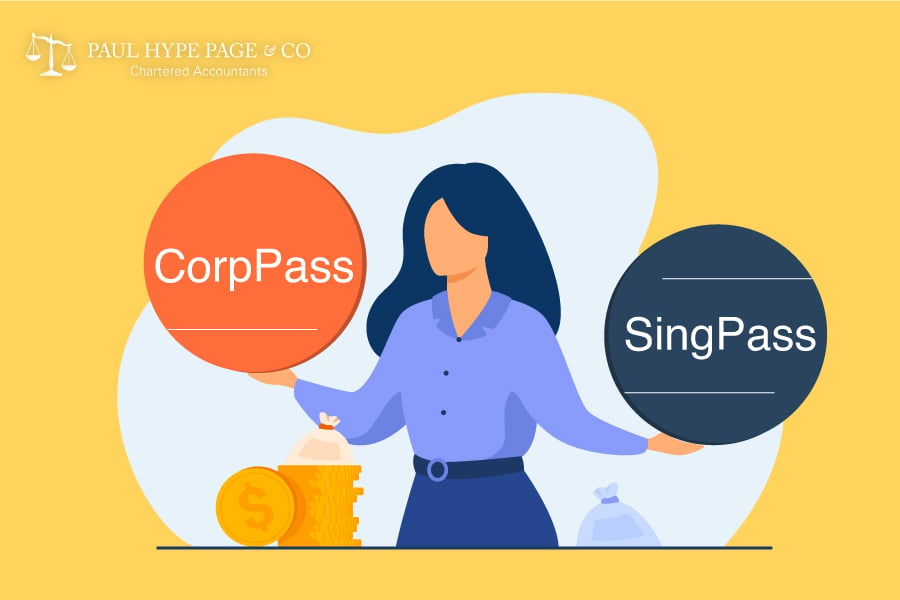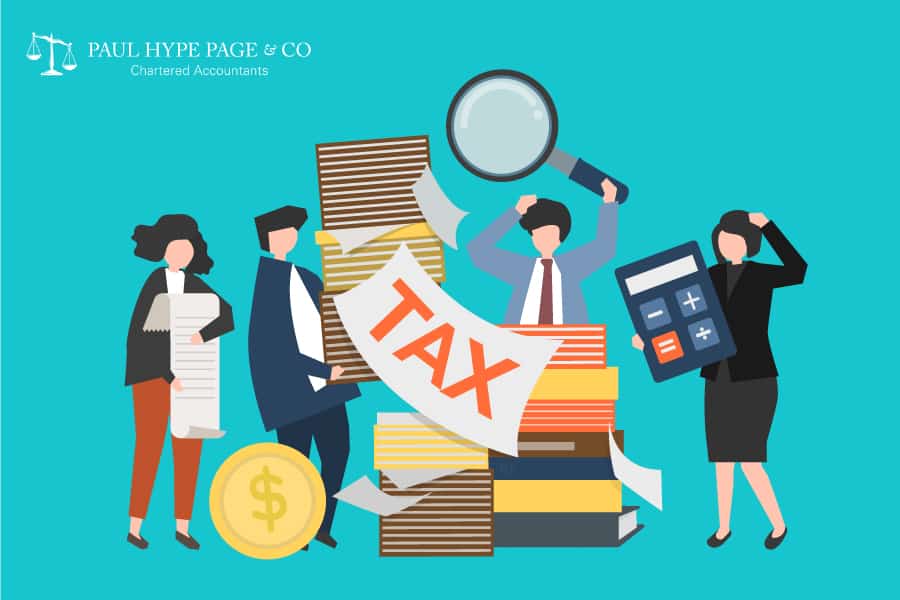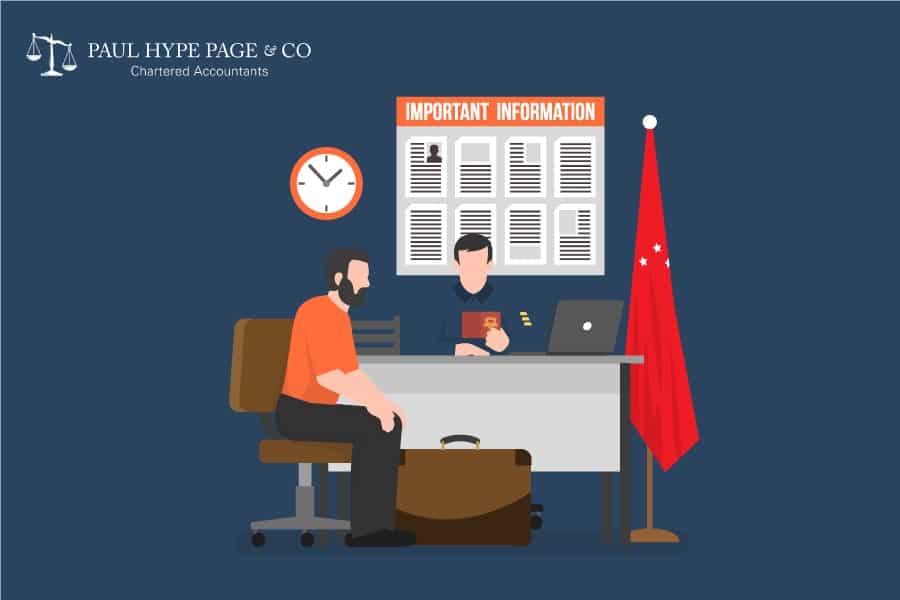CorpPass (Corporation Pass) is a mandatory digital identity system for businesses and entities in Singapore to interact with government agencies. Whether you’re starting a business, managing company compliance, or handling regulatory filings, CorpPass is essential for accessing a range of services on Singapore government portals. This system allows businesses to submit documents and applications electronically to various authorities, such as the Accounting and Corporate Regulatory Authority (ACRA), the Inland Revenue Authority of Singapore (IRAS), and the Ministry of Manpower (MOM).
In this article, we will discuss the importance of CorpPass for Singapore entities, debunk some common misconceptions about its use, and provide troubleshooting tips to help you resolve any issues.
Why Does Your Singapore Entity Need CorpPass?
Every business entity registered in Singapore must obtain a CorpPass account to access key government services. This includes setting up and managing company-related activities like tax filings, applying for work passes, filing annual returns, and even submitting financial statements. For Private Limited Companies (Pte. Ltd.), Limited Liability Partnerships (LLP), and branches of foreign companies, CorpPass is crucial for:
- Filing taxes with IRAS
- Managing Employment Pass applications
- Submitting compliance documentation to ACRA
- Interacting with MOM for employment-related issues
Without CorpPass, entities cannot complete many essential business tasks. A CorpPass account is typically created by the company secretary or a designated administrator, and access is provided to various employees or directors to perform specific duties. This system ensures secure, traceable interactions with government services.
General Procedure for Assigning CorpPass Access to Entities and Users
In order to efficiently use CorpPass for your business’s interactions with government agencies, it’s important to follow the proper procedure for assigning CorpPass access. The process involves two main stages: first, assigning the necessary CorpPass portals to your company or entity, and second, granting access to individual users within your organization.
Step 1: Assigning CorpPass Access to the Entity
The first step in the process is to assign the appropriate CorpPass portals to your business entity. This is a necessary step before any individual users can access and utilize specific government services. As the CorpPass administrator, you will need to log into your CorpPass account, go to the “Assign Portal” section, and select the relevant government portals your company will need access to. These may include portals for ACRA (company registration), IRAS (tax filings), MOM (Employment Pass applications), and other essential regulatory bodies. Only after completing this step can you move on to assigning portal access to users within your organization.
Step 2: Assigning Portals Access to Users
After you assign the portals to your company, you can start granting access to individual users. The CorpPass administrator typically handles this, delegating permissions to employees, directors, or external consultants. Each user must receive specific portal access based on their role and responsibilities. For example, HR personnel may need access to the MOM portal to handle Employment Pass applications, while accountants may require access to IRAS for tax filings. You can assign different levels of access depending on the user’s needs, ensuring that only those with the proper authorization can manage sensitive information.
To assign portal access to users, log into the CorpPass system, navigate to the “Manage Users” section, and select the user you wish to assign. Then, select the portals they require access to, based on their tasks. It’s important to ensure that each user has only the necessary permissions for their role to maintain security and prevent unauthorized access.
Once these steps are completed, users will receive an email notification prompting them to activate their account and log in. At this point, they will have full access to the portals they’ve been assigned and can begin using CorpPass for their business-related tasks.
This process ensures that only authorized personnel have access to sensitive company data and that regulatory requirements are met effectively and securely. If you need any assistance with setting up CorpPass or assigning user access, Paul Hype Page & Co. can provide expert support to streamline the process and ensure compliance with Singapore’s regulatory framework.
Step 3: Managing and Monitoring Access
Once user roles are assigned, it’s important to regularly monitor access and manage permissions. CorpPass Administrators should conduct periodic reviews of who has access to sensitive information and digital services. Keeping an eye on transaction histories, limiting the number of administrators, and enabling two-factor authentication (2FA) can significantly improve security. Businesses must also ensure that users update their personal information, such as contact details and job roles, to maintain accurate records within the CorpPass system.
Step 4: Troubleshooting Common Issues
Like any digital system, users may encounter issues with CorpPass from time to time. The most common problems include difficulties logging in, issues linking CorpPass accounts to SingPass, and problems switching between CorpPass accounts. To troubleshoot these issues, users should ensure their identity verification is up to date, check for any login errors, and use the “Switch Account” feature on the SingPass app if they experience access conflicts.
If these steps do not resolve the issue, contacting CorpPass support or consulting with professionals who understand the system can help smooth the process.
Why CorpPass Matters for Your Business
Using CorpPass efficiently is essential for ensuring that your business stays compliant with Singapore’s regulatory requirements. With CorpPass, businesses can access a wide range of government services, including tax filings with IRAS, company registration updates with ACRA, and employment pass applications with MOM. It serves as a secure, reliable gateway to government services and plays a critical role in maintaining transparent business operations.
Common Misconceptions About CorpPass
Misconception 1: Only Large Companies Need CorpPass
One common misconception is that small businesses or startups don’t need to set up CorpPass because they’re not dealing with large-scale government filings. However, this is far from true. Every registered entity in Singapore—regardless of size—needs to have a CorpPass account to handle even basic tasks like renewing licenses, filing annual returns, or applying for the Employment Pass. Neglecting this crucial step can delay processes and cause compliance issues.
Misconception 2: CorpPass Is Only for Tax Filings
Another misconception is that CorpPass is only required for tax-related activities. While it’s true that IRAS is a key player in CorpPass usage, this digital pass also connects to ACRA, MOM, and other government bodies. It’s needed for multiple operations such as:
- Applying for work visas for foreign staff
- Updating company details with ACRA
- Filing for Goods and Services Tax (GST) registration
- Managing CPF submissions for employees
Misconception 3: CorpPass Is Only for Directors or Company Secretaries
Many assume that only directors or company secretaries need access to CorpPass. Designated users can manage specific functions, such as HR personnel handling EP applications or accountants managing tax filings, while these roles typically have primary access. This flexibility allows businesses to delegate tasks while ensuring security and proper access control.
Misconception 4: CorpPass Is Not Required for Foreign Entities
Foreign companies setting up a branch office or subsidiary in Singapore often mistakenly believe they don’t need CorpPass for their local operations. This is inaccurate. Foreign entities are required to set up CorpPass to interact with Singaporean authorities just as local companies do. It’s important to have the local director or authorized personnel set up the CorpPass account as part of the registration process.
Troubleshooting CorpPass Issues
Even though CorpPass is a straightforward system, many businesses encounter issues during setup or when attempting to perform tasks. Below are common problems and how to troubleshoot them:
Issue 1: Access Denied or Login Issues
If you encounter issues logging into your CorpPass account, check the following:
- Account Permissions: Ensure the account is correctly assigned with the right permissions for the tasks you are attempting. Users need specific roles to access certain government portals.
- Password or Security Token: If login fails, double-check the credentials and ensure that your security token is active. Reset your password if needed.
- Expired Account: CorpPass accounts are valid for specific periods. If the account has expired, you must reapply or update the credentials.
Issue 2: Unable to Register for New Services
When trying to register your company or employees for new government services (e.g., employment passes or tax filings) but facing issues:
- Ensure Correct Entity Details: Verify that the company’s details in CorpPass match the ACRA records. Any mismatch can cause registration failure.
- Check Eligibility: Certain services, like GST registration, require specific conditions (e.g., turnover thresholds). Make sure the company qualifies before applying.
- User Permissions: Double-check that the user attempting to access these services has the correct permissions set in CorpPass. Company secretaries, accountants, and HR personnel may need access granted for specific services.
Issue 3: Unable to Access Multiple Government Portals
If you face issues accessing various government portals after logging in:
- Check Linked Services: Ensure the services you need are correctly linked to your CorpPass account. Some services require additional steps to connect with your account, like linking to MOM for Employment Pass applications.
- Permissions Conflict: Sometimes, permission conflicts between users can cause access issues. Ensure that the roles assigned are correct and that no one user has conflicting permissions for various services.
Issue 4: CorpPass Registration Delays
If your CorpPass registration is delayed:
- Documentation Requirements: Ensure all required documentation (e.g., proof of identity, company registration details, etc.) is complete and properly submitted.
- Business License Verification: For new companies, check that your business registration has been fully processed by ACRA before applying for CorpPass. Sometimes, delays in ACRA processing can affect CorpPass registration.
FAQs
The RO is a person whom the entity is registered or incorporated to; he/ she usually holds legal authority or is bounded to legal matters relating to the entity. There may be more than 1 RO per entity. Individuals who are eligible to be a RO include:
- Business Owner
- Company Director
- Shareholder
- Partner
- Board Member
The RO will be responsible for:
- Appointing a CorpPass Admin (offline) for the entity; and
- Approving online registration of CorpPass Admin account
Smart Nation is a Singapore government initiative to harness infocomm technologies, networks and big data to the fullest to create tech-enabled solutions with the aim of improving the lives of citizens, creating more opportunities and building stronger communities. Smart Nation is a transformed Singapore where people will be more empowered to live meaningful and fulfilled lives, enabled seamlessly by technology that offers exciting opportunities for all. It is where businesses can be more productive and seize new opportunities in the digital economy.
Entities such as tutors, taxi drivers and hawkers with no registered companies do not need to switch to CorpPass. They can continue to use SingPass.
A person whom the entity is registered or incorporated to; he/ she usually holds legal authority or is bounded to legal matters relating to the entity. There may be more than 1 Registered Officer per entity. Individuals that can be a Registered Officer include:
- Business Owner
- Company Director
- Shareholder
- Partner
- Board Member
Responsible for:
- Appointing a CorpPass Admin (offline) for the entity; and
- Approving online registration of CorpPass Admin account.
Government-to-Business (G2B) is the online non-commercial interaction between local and central government and the commercial business sector with the purpose of providing businesses information and advice on e-business best practices. G2B transactions refer to the conducting of transactions between government bodies and business entities via the internet.
Here are some tips to protect your account and personal information:
- Do not share login information: Keep your SingPass ID, password and 2FA details confidential
- Do not re-use passwords: Certain websites that you access may not be secure. Login information may be stolen from these sites and used to hack your SingPass account
- Change passwords regularly
- Use strong passwords: Strong passwords are alphanumeric and contain 8 to 24 characters.
- Look out for phishing sites: There may be sites that look like government websites to trick you into disclosing your personal details. To verify that it is not a phishing website, always check that the URL is correct (www.singpass.gov.sg), and there should be a ‘lock’ icon in the address bar.
All citizens of Singapore, and permanent residents of Singapore and other nationalities (foreign nationals) are allowed to apply for a SingPass.
Share This Story, Choose Your Platform!
Related Business Articles






